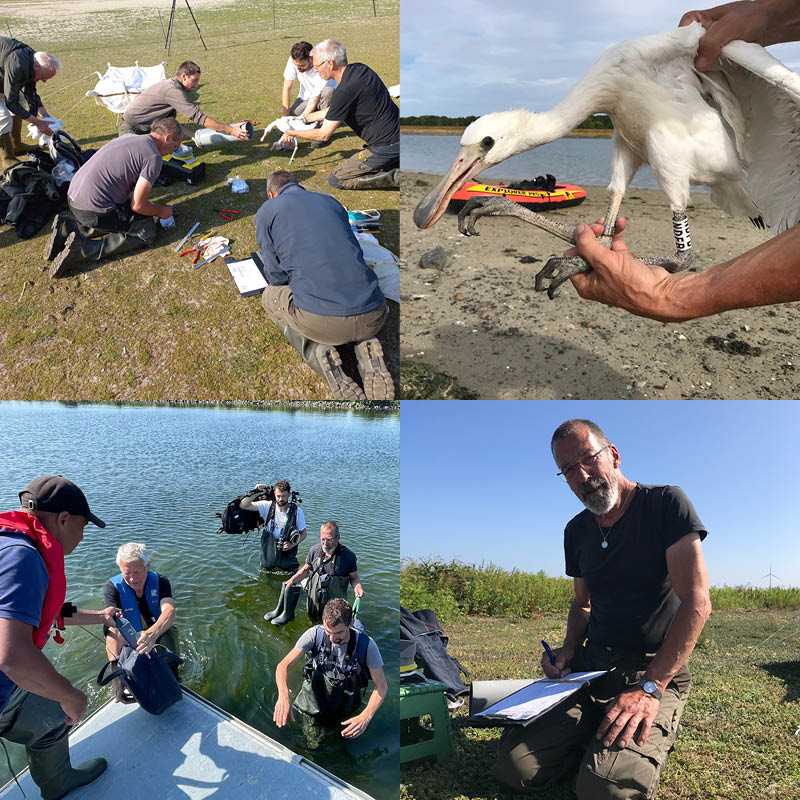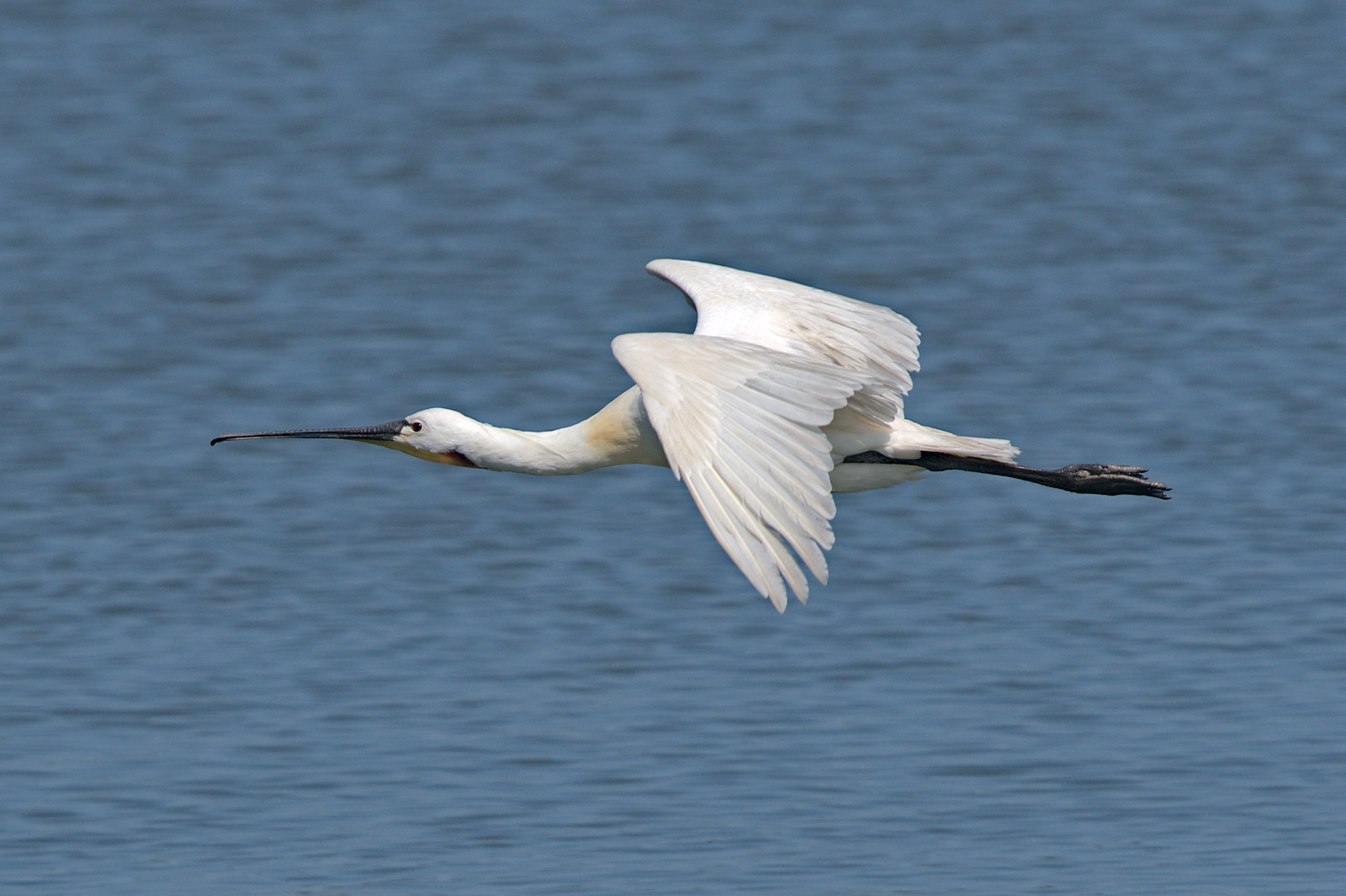It is the end of June and in the Delta-area area we have already finished ringing the young spoonbills. From the end of May until the end of June we carried out eleven different ring actions, which always requires a lot of organizing. Almost all of these colonies are located on islands, which means that various boats have to be arranged. There must also always be enough people to catch the spoonbills, colour-ring them, and to register ringnumbers, sizes and weights. All kinds of materials have to be taken with us: the rings, ring pliers, glue, callipers, wing slats, scales, tents to temporarily store the young birds and disinfectants to prevent bird flu. We were sailed over with boats from Rijkswaterstaat, the Zeeuwse Landschap, Brabants Landschap, three different boats from Staatsbosbeheer and not to forget our new pride: our own inflatable float of a few tens of euros. One island was accessible with wading suits and one colony was easily accessible with ordinary shoes.

Although several colonies have disappeared due to the fox in recent years, the number of occupied locations has stabilized at around 20. These some larger and some smaller colonies are spread over Zeeland (11), South Holland (6) and Brabant (2). The total number of nests has also been fairly stable over the past five years and fluctuates around 1000 nests.
Because bird flu had killed spoonbills in a few cases last year, we were also afraid this year that things would go wrong somewhere. Especially in colonies of black-headed gulls and terns many thousands of birds have indeed died of bird flu this spring, but this year the spoonbills seem to be healthy (the season is not quite over yet, fingers crossed!). We are of course very happy with that. However, more than a hundred nests in the Markiezaat have been lost to foxes. Employees of the Brabants Landschap then protected the remaining part of the colony with a anti-fox fence. At the time I’m writing this, the nests within this grid are successful and dozens of clutches has been layed by birds that previously saw their nests lost. They just try again.
Thanks also to the help of the aforementioned site managers, 224 young spoonbills were ringed in the Delta this year. All the more reason to take a closer look at the large groups that appear every year in late summer. Those first ring readings can be the beginning of beautiful life histories!

A spoonbill flies low above the water surface - Photo: Folkert Abma

